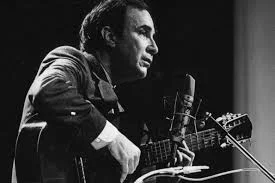The Mythology of João (in English)
“The Mythology of João Gilberto”
Lately I have received several messages asking me to clarify some aspects about the musical revolution brought to bear by João Gilberto, composer, singer and guitarist from Juazeiro, Bahia, who left us this past Saturday.
Perhaps due to the romanticized mythological aura erected around his persona by the press, literature and the academia, João has become an untouchable monument hard to study, criticize and comprehend. There are those who blindly defend the legacy of João, placing him at the zenith of the pantheon of Brazilian artists (the Rolling Stones magazine has recently elected João as the second most important Brazilian musician of all times). On the other side, there are those who claim that João’s legacy was a disservice to the national identity; a process of “Americanizing” Brazilian music; a result of the “apartment experiments” from the middle/upper-class’ musicians in Rio, stimulated by imported American whisky. After some years of experience with academic research, I have learned that whenever such polarized views appear, there is rarely a correct side; truth normally lies in between. Thus, it is important to look at the situation in its complexity, filled with contradictions, mythologies, mistakes and singularities. We must admit, nevertheless, that João is a central figure in the history of Bossa Nova, and thus in the history of Brazilian Music. In 1965, we must not forget that in the midst of Beatlemania, the “best album” Grammy was handed to João, and not to John.
As the old saying goes, one YouTube video is worth a thousand words. To understand the real impact of the Bossa Nova movement, one should start by watching snippets of the following video with the 100 top Brazilian Radio hits in the 1940s (https://youtu.be/3nwTd_WXa-I). Right after that, listen to a few seconds of João’s “Chega de Saudade” (1959), considered the pioneer album spearheading the Bossa Nova movement/genre. The difference is astronomical, as if there was a portal dividing a distant past from a familiar sound, still present in every corner of the streets of Rio or São Paulo. There was a tremendous shift of paradigm, in which a new way singing, playing, and listening to music replaced an old paradigm marked by operatic interpretations of old Sambas, Boleros, large orchestral arrangements, exaggerated lyricism and “hardened” (stiff) grooves.
João’s musical innovations overlap with all the Bossa Nova’s characteristics. To begin, the guitar groove, so simple, concise, however highly syncopated (each and every accent is unexpected, surprising, carefully placed over the offbeats – weak beats – in order to constantly dislocate one’s perception of regular pulse). It suffices to compare it to the primitive, predictable and repetitive guitar patterns from the traditional “Samba-Canção” from the 40s. João’s idea was to create a rather extemporary groove, improvised, unpredictable and delicate, freed from the obligation to submit to the strenuous repetition of fixed rhythmic patterns. Many claim that this was a result of the influence of American Jazz, in special Cool Jazz, which started as a reaction to the grandiose and meticulously arranged sound of the swing Big Bands.
Furthermore, João’s biggest and most impactful innovation was on the vocal realm. In clear defiance against the paradigm of the operatic style from the radios and casinos, João started to sing with a rather dry voice: clear, no vibrato, no sense of humor, with quiet volume and uniform tone. One more time we can notice the influence and similarity between João and American Jazz singers such as Chet Baker, as one can notice in the following video of a performance of the charming American singer after a street fight that cost him his central incisor (https://youtu.be/0ybMVHeJZ7w). The difference is that João became a master in displacing the melodies, delaying and anticipating it in relation to the original format, making his interpretations unique, surprising, fresh and elegant. Despite his emotional dryness, the friction between vocal melodic displacement and constant guitar syncopation opened a universe of expression and improvisation possibilities. This became the new “school” of Brazilian vocal and songwriting style, influencing generations of musicians such as Chico Buarque, Gilberto Gil, Caetano Veloso, Edu Lobo, Paulinho da Viola, Roberto Carlos, Milton Nascimento, Geraldo Vandré and many others.
Back to our original topic, I would like to bring to the table the words of the great Hungarian thinker Arthur Koestler, who believed that every great invention or creative revolution is never the result of an individual effort, but of a collective transformation in the way a certain community thinks. No structural shifts happen overnight; it is necessary to go through a process of gradual “ripening” within a group of people, a collective cultural phenomenon in which the accumulation of new skill sets lead to an inevitable transformation/revolution. We live in a society in which the historiography and media constantly embark on a quest for individual geniuses, heroes and pioneers, instead of analyzing the cultural phenomenon and community behind those revolutions.
In this particular case we must not ignore that guitarists Garoto (https://youtu.be/egB--OYHbOQ) and Luís Bonfá (https://youtu.be/luLaqhTM478) were already experimenting with jazz harmonies and improvisation a decade before João; That composer Custódio Mesquita was already utilizing advanced modulations and harmonies years before Jobim emerged in the Rio scene (https://youtu.be/-lx83iCUkbc); That pianist Johnny Alf was already flirting with the soft vocal style and melodic displacements way before João started his solo career (https://youtu.be/z7cRw1qOCgw). Thus, we must situate João not as a genius-inventor or movement pioneer, but as a synthesis that helped establish a new paradigm that was already being erected collectively by an artistic community.
I am by no means trying to diminish the merit of João; I am just trying to humanize him: release him from the burden of “guardian” of Bossa Nova, and simply look at him as a beautiful epitome of a collective creative process, a legacy of the hard work of dozens of incredible musicians.
Henrique Eisenmann, DMA.
July 11th, 2019
